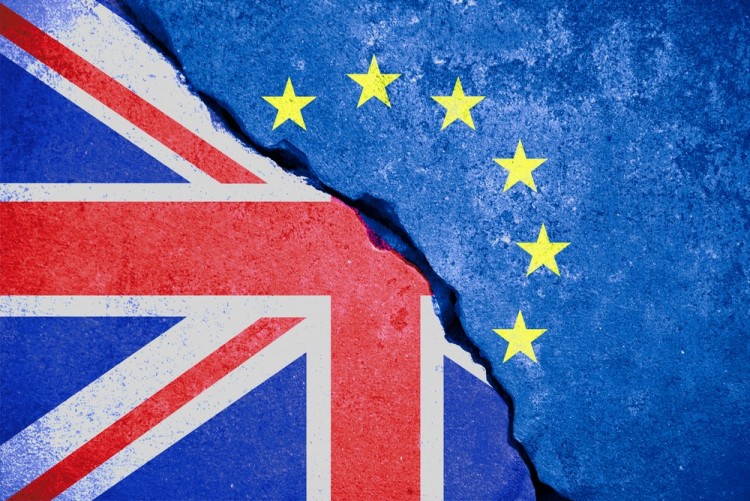
Buyers are willing to wait until they get an idea about the negotiations that Britain may make during the Europe exit.
Britain’s departure from Europe is coming closer, and perhaps this is the reason, the housing market has come to a halt.
Between May 2017 and 2018, Britain’s real estate market did witness positive activity. However, the growth reported in the South East and East of England was weak with tumbled sales. London’s prices saw a 0.4 percent rate drop compared to the last year.
Brexit’s possible impact on the real estate market has become a cause of concern for both, homeowners as well as prospective buyers. For some, buying a house has already become unaffordable.
Is the property market witnessing softness because the Brexit date is coming near? How would the market react after 29 March 2019? Everyone is asking these two questions to real estate experts.
How did the property market react to the Brexit vote and its after effects?
After June 2016s EU referendum, some analysts had expected the house prices to crash rapidly. That has undoubtedly not happened, but growth has slowed down in some parts of the UK. At present, the rates vary from one region to the other.
Until the EU referendum, home prices in the UK grew 8 percent every year. But the rate has reduced to around 3 percent on an average this year according to the numbers presented by the Office for National Statistics (ONS).
Region wise, London and nearby areas reported minor growth in prices while England’s South West, Midlands and Northern part have witnessed around 4 percent increase in rates until May this year. Even prices in Northern Ireland showed similar growth.
Before the Brexit vote, home prices in London use to show an impressive growth rate of around 12 percent each year. Now, London’s prices are dropping the entire nation’s average.
The point to be highlighted here is that 12 percent of London’s residents happen to be from EU countries. A considerable percentage of people from EU27 countries live in London. They prefer it over other parts of the UK where the rate of EU27 nationals is around 6 percent as per ONS data.
According to analysts, it’s not just the Brexit that has affected the London real estate business. Real estate expert and director of Residential Analysts, Neal Hudson, interacted with journalists and shared some interesting insights from the realty market. He pointed out that landlords’ profits have reduced due to some of the recently introduced tax and regulatory changes. Thus, the demand for properties from buy-to-let investors has decreased considerably in London. Investors are thinking twice before buying property with an intention to give them on rent and make money.
Owners not willing to sell their property at lower prices
Hansen Lu from Capital Economics also shared this opinion on this matter. He said the market is witnessing a stand-off between property seller and buyers. Homeowners are not willing to sell their properties at a lower rate. Thus, many houses in the South East of England and London will remain unsold during the coming months.
Since the EU referendum, the home sales percentage has dropped in South East as well as London. Compared to the London real estate sales percentage from 2015, the year 2017 witnessed a 20 percent reduction in sales. The South East and Eastern parts also reported a decline of around 8 percent during the same period.
The unemployment rate, as well as interest rates on mortgage rate, is low. Thus, London’s homeowners are not too keen to sell and are choosing to wait and watch with a hope to see growth. Brexit has already resulted in job losses, and it can further trigger price plunge in London. Due to the Brexit economic shock, even a small number of desperate property sellers can result in a slump in prices.
Trade barriers after the exit
As mentioned earlier, the interest rates, as well as wages, influence the housing market. Now, the economists expect the salaries in the UK to remain suppressed due to Brexit. Any growth in wages is not likely during the next few months due to the UK’s exit from the EU. The extent of the influence on salaries will depend on the Brexit negotiations.
It is evident that a lot of trade barriers will arise after the UK’s exit and growth rate will fall. A reduction in the country’s growth means further fall in house prices as well.
Bank of England’s Governor Mark Carney has recently urged the government and all the stakeholders to opt for an orderly Brexit. He also said the central bank would end up increasing the interest rate to control inflation in case of a Brexit without proper withdrawal deal in place. The rise in interest rate will further harm the real estate sector.
Theresa May’s approach has been very positive since the last few months, and she has even opted for a transaction period from the Brexit day to 2021 for a smooth transaction. She’s doing everything possible to avoid hasty withdrawal.
But, even an orderly exit will probably result in an interest rise as there won’t be any uncertainty and need for lower interest rate anymore. Thus, the housing market will continuously remain under a shadow at least until the end of 2019. Overall, the house prices may not move much upward during the next five years.
Even the Britain’s currency is facing the heat since June 2016 and is under pressure since then. The EU exit will happen on March 29, 2019, and the transition period will be until sometime in 2021. By that time, the picture about Britain’s new relationship with the European Union will be more precise.
During the next few months, technical indicators will start showing a lot of activities. To avoid losses, EU investors will start selling pounds in the market and convert their investment into other European currencies.



